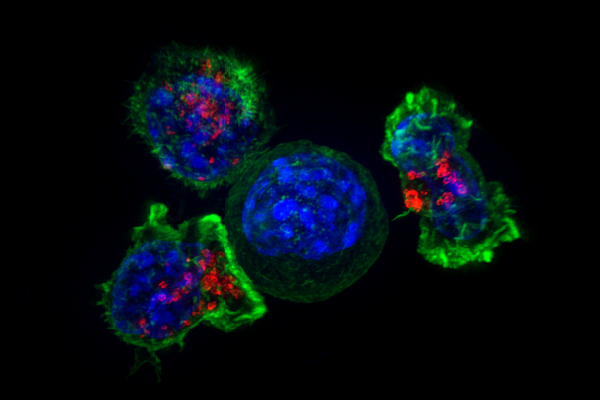Investigators map genomic landscape of very rare cancer

A team of Vanderbilt researchers mapped out the genomic landscape of a metastatic malignant proliferating tricholemmal tumor and identified a targeted treatment for this very rare cancer.
The patient case report, published recently in npj Precision Oncology, was only the 28th instance of the cancer documented in medical literature and the first instance where genotyping occurred.
"We can bring precision medicine to the treatment of these rare tumors," said Christine Lovly, MD, Ph.D., associate professor of Medicine in the Division of Hematology and Oncology. "Precision medicine for rare tumors is very important.
"In this case, there was no standard of care therapy for this patient, but by testing the tumor for possible mutations, we were actually able to find a target that we knew a lot about in other cancers."
The molecular profiling of the tumor identified a PI3K mutation, and the patient was enrolled in a Phase I clinical study to receive apelisib, an experimental therapy that targeted the mutation. PI3K mutations are also found in breast, endometrial, colon and lung cancers.
The patient, a 58-year-old woman, had metastatic disease when she was referred to Vanderbilt-Ingram Cancer Center for what her previous doctors had thought was a common skin cancer. For almost 10 years, she had a small painless cyst on her scalp. She had it removed for cosmetic reasons, and it was initially reported as a squamous cell carcinoma of the skin. However, the cancer reemerged, and she was eventually referred to Vanderbilt, where she was diagnosed with the rare cancer that originates from a hair shaft.
By that time, the cancer had spread to her lymph nodes and neck. The woman underwent two rounds of surgery and chemotherapy at Vanderbilt before she was put on a waiting list for the Phase I study of apelisib.
The patient demonstrated a partial response to the targeted therapy, and a biopsy indicated significant reduction in proliferating cancer cells as a result of the drug (apelisib).
Unfortunately, the patient stopped taking the drug after developing pneumonia and then opted to end aggressive treatment. She directed that an autopsy be performed to further research into metastatic malignant proliferating tricholemmal tumor.
This patient's story lays the foundation for other patients with the rare cancer to have improved outcomes through rational, genotype-driven therapeutic choices.
"You need a multidisciplinary team to do this research and provide this level of care," Lovly said. "We are very lucky to work at a place where people like to work together, including medical oncologists, surgeons, pathologists, radiologists, genomic scientists and informatics experts. It's a big team. It takes a village to make this all come together. We hope by writing this paper, it helps the next patient who has this rare disease."



















